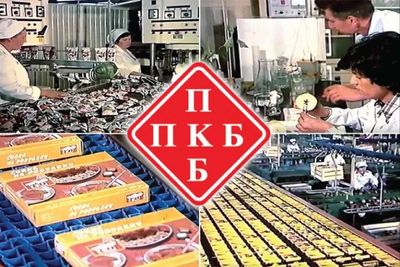PKBAgricultural Kombinat Belgrade: Agriculture as AgentMaëlle Odermatt and Kerstin Spiekermann

North of the Danube lies a 400-km-long wetland that was formed by the retreat of the Pannonian Sea after the prehistoric Pliocene Epoch. Throughout history, great effort has gone into re-engineering this vast landscape with canals, dykes, and farmland as the “granary” of Belgrade and the neighbouring town of Pancevo. Eventually fully drained under King Alexander in the early 20th century, this large agricultural basin was under the monarchy’s control and initially only sporadically populated with farming villages. During the socialist era, the fertile lands remained the property of the state. Construction of a bridge and more regional roads brought the agricultural settlements within reach of the city and fuelled their growth in the 1950s. Since the collapse of the socialist regime waves of informal settlement have occurred and the more recent completion of a second bridge and highway has brought the population of this area to 180,000. As the only municipality of Belgrade that extends beyond the Danube to the north, Palilula seeks to claim its municipal autonomy as the third major urban extension of Belgrade after the historic centre and the modernist New Belgrade.
PKB Belgrade, Serbia’s largest agricultural company, still manages the land which is the property of the City of Belgrade. It primarily grows food staples for two million residents in the greater Belgrade area. Stock breeding, fishery, and hunting are also intensively practiced. Industrial agricultural complexes owned by the PKB, as well as international companies like Nestlé, line the single road through the fields. A few suburbs of newer single-family houses have been built between the old socialist workers’ housing and the bogs and marshes. Three tendencies overlap here: the regional transport and adjacent industry, a flat landscape of waterways and fields, and pockets of informal housing.
Only a few houses on stilts existed before the drainage system was built to turn the Pančevački Rit wetland landscape into arable land. Constant changes in politics and ownership caused emerging new settlement, such as the first farm villages, Borča and Ovča. Following the founding of “PKB” in 1945, large industrial farms and workers’ housing were constructed all over the Rit. In socialist Yugoslavia, further new planned settlements were built alongside public facilities, such as schools, movie theatres, sports clubs etc. After socialism, the lack of affordable housing in the city centre created a loss of development control in the suburban areas. Private buildings started to spread into the fields, the well-planned facilities and infrastructures became overloaded, and PKB lost its authority over its land development. The project Agricultural Kombinat Belgrade: Agriculture as Agent aims to reclaim the agency of agriculture for regional development in Belgrade, opening and reconnecting the vast and productive PKB land to Belgrade and further to the public’s consciousness. New attractive public facilities all over the Pančevački Rit are created to strengthen the citizens’ bond to food and, consequently, to the land it is produced on.














